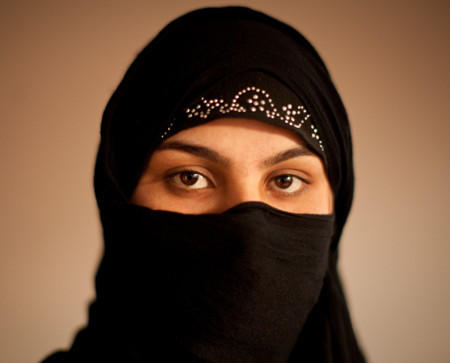By Jerome Starkey

Sonia, a young girl who ran away from her home to escape an arranged marriage. (Photo: Jerome Starkey / The Times)
Sonia stole some money from her mother’s dresser and fled the house in such a panic that it was only in the road outside that she realised her shoes were different colours. But by then it was too dangerous to turn back.
Shrouded in a burka and with tears streaming down her face, the 14-year-old was fleeing an arranged marriage to a Taleban insurgent.
“All I had was 500 Afghanis (£6),” she said. “It was a terrible feeling because I didn’t know if I was going to survive.” She didn’t even say goodbye to her six-year-old sister. Instead, she walked unnoticed into the backstreets of Jalalabad.
Almost four years later she is living “like a prisoner” in a secret women’s shelter in Kabul, terrified that her relatives or her fiancé’s family will track her down. “They will definitely kill me,” she said. “They will give me a really terrible death.”
Sonia, like countless women who break Afghanistan’s strict patriarchal customs, is trapped between her family, the insurgents and the law, which would all wish to do her harm.
Despite new legislation designed to help women who flee abusive relationships, more than half the country’s female prisoners have been jailed for “moral crimes,” according to a report by the United Nations. These “crimes” include simply running away, which is seen as an indelible stain on a family’s honour, despite having no basis in law.
The UN report said that women are treated like livestock, while those who are brave enough to seek shelter from the police often endure even more abuse, including rape and sexual harassment, before being handed back to their families and forgotten.
Sonia was 4 when her father died leaving her older brothers and her uncles to determine her fate. When she was 10 they engaged her to a middle-aged man who her brothers later said was an insurgent. It was also their cue to stop her going to school. “At the time I didn’t know anything about [my fiancé],” she said. “But after a while I heard that he worked for the Taleban.”
A few months after the engagement, her fiancé disappeared and her brothers said he had been arrested and sent to Guantánamo Bay, the American-run prison in Cuba. Then, when Sonia was 14, her fiancé’s brother came to the house and claimed her for himself.
“I didn’t even know if my fiancé was alive or dead,” she said, in a voice barely audible above a whisper. “But one night his brother came to my house and said ‘you have to marry me, you have to come and live in our home’.”
Sonia, who has assumed an alias to protect her real identity, said the brother and his family, who were from the Khogyani district in the eastern province of Nangahar, had a fearsome reputation for beating the women in their home, and she decided that her only choice was to run away.
“One of their wives was beaten so badly that they nearly killed her,” she said. “I told my mother several times that I would run away, but she told me not to say it in front of my brothers because ‘they will kill you’.”
The day she fled was the first time she had left her home alone, and at the bus station in Jalalabad a driver refused to let her board because she was unaccompanied and sobbing so violently. “I told him my brother had died in Kabul and he let me on,” she explained.
By chance, she met a “kind-faced” old woman at the bus station in Kabul who introduced her to the shelter. Since then, she said she had ventured outside only twice in almost four years. “I had a cousin who eloped to Pakistan,” she said. “Her parents persuaded her to come back. They promised they wouldn’t hurt her, but they took her to Laghman [a neighbouring province] and stoned her in the mountains. Now, every time I leave the shelter I think about that girl being stoned to death.”
One excursion was to tell The Times her story; the other involved a trip with the shelter staff to seek a government guarantee of protection. It was unsuccessful. “It has been four years and the Government hasn’t done anything to help,” she said. She has restarted her education but still battles with loneliness. “We have everything there except freedom,” she said. “Clothes, food, but these things mean nothing when you can’t go outside. I am all alone without my family and at night I always dream that I am back with them. But when I wake up I am glad I am here.”
She recently tried to make contact with her family, via telephone intermediaries. She got a message back saying that her little sister, now 10, had been made to take her place and was engaged to the man she abandoned.
“I felt guilty,” she said. “I felt like I had made a mistake running away and I should be in my sister’s place, so she doesn’t have that fate. It made me wish I was there instead.”



